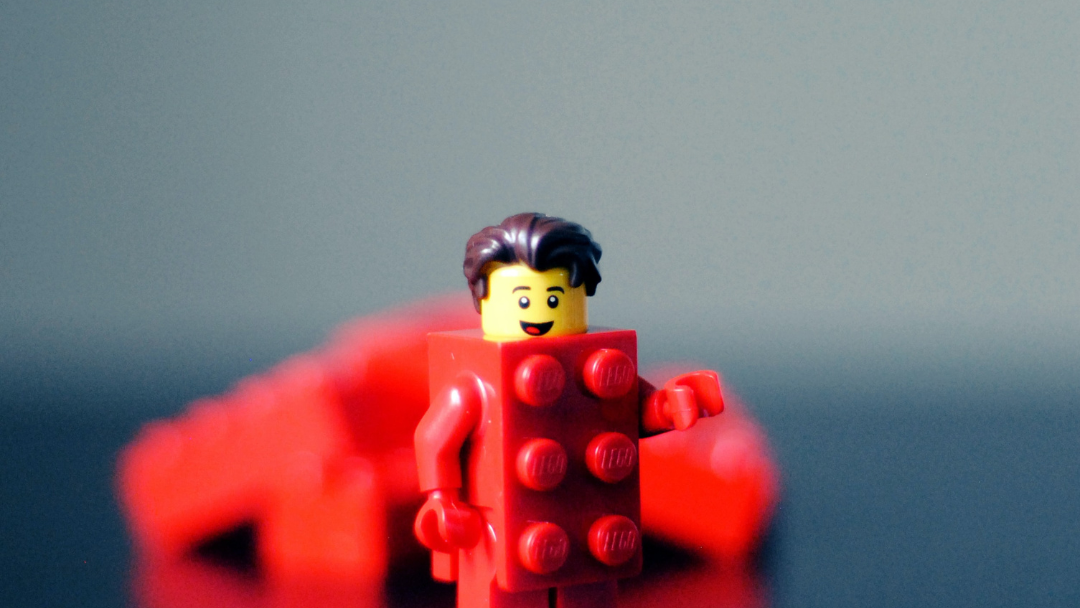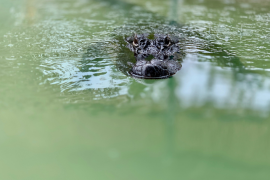Named a Finalist for the 2022 Summer Short Fiction Prize
TEDDY SENT A LEGO MAN INTO SPACE. He sent a pirate into the stars. The macabre, execution style method was lost on the innocent boy, the way he tied the string around the seafarer’s neck, let loose the helium balloon as he watched a tiny body rise, become tinier still, invisible but for the latex bubble that was a star-bound blimp, a futuristic, space zeppelin, which in time, too, disappeared into the clouds.
Teddy sent a peg-legged sailor to the moon. He rocketed an old sea captain into the cosmos. The first seven year old to break orbit, to break records, not even breaking a sweat as he elevates himself from just-your-normal-kid to astronautical engineer. Later on in life, Teddy will break out in acne. He will break his leg skateboarding. He will break up with his first girlfriend because when they kiss he finds himself daydreaming of his baseball coach or his best friend, Jake. He will say it is because they are destined to attend different universities, that he doesn’t want the long term relationship. He will say what everyone has said at least once in their life, that it’s not you, it’s me.
Today, seven year old Teddy is not bogged down with the trials and tribulations of adulthood. Today, he revels in his achievement, his astonishing feat. Today, he has sent an eye-patched mariner to Mars, the parrot that perched upon his shoulder to fly the endless skies of Jupiter. Teddy is proud of his ingenuity. He wholeheartedly adheres to the belief that these mighty enterprises are worthy of the sacrifices that have come as a cost to their completion. He notes, without regret, that his toy box has become less encumbered, that the Lego population is down by one, that the fleet of black-sailed sloops no longer boasts a competent admiral. Free of a heavy heart, Teddy accepts the loss of a yellow, helium balloon.
One cannot have their cake and eat it too. Teddy knows this. He nods in tribute to the sage wisdom of that very notion. He ponders the acuity of its undeniable truth. Then, as a yellow balloon climbs so very high, becoming so very small that there is no longer anything to look at, Teddy withdraws to go inside. There, in the kitchen, he eats birthday cake left over from yesterday’s party. He enjoys the rich chocolate frosting, the light, buoyant body of the heavily decorated dessert. He takes a bite out of the number seven drawn out in rainbow sprinkles. He eats his cake, forgetting whatever drivel was holding his attention a minute or two earlier.
***
Amy has developed a phobia of ghosts, of malign spirits that she swears visit her each and every night, of shadowed demons, evening gargoyles that enter and occupy what has now become her unhappy bedroom. Her parents tell her she is being silly. To appease, they check the closet before they tuck her in. Mom, dismissive of Amy’s gnawing trepidation, catering to her own, wondering what medications might smooth things over. Dad, carefree, laughing it off and mussing his child’s hair.
Unbeknownst to Amy, a Lego man hangs from a lofty branch in the oak tree outside of her bedroom window. It is well tangled, solidly fixed, stoutly anchored. It sways in the wind but otherwise dangles motionless, a ghastly scene of capital punishment, the aftermath of a town square spectacle, dead weight suspending from the gallows.
Eyed by a curious jay, studied by a juvenile fledgling, a seasoned buccaneer boldly stares back, unblinking, with his one eye at a blue-feathered harpy. When his avian neighbor makes an unpracticed attempt at flight, fluttering, graceless, to a lower branch, his view into Amy’s bedroom window becomes unobstructed. He grimaces as he watches her prepare for bed. He grimaces, always, as if he articulates pirate speech for enthusiasm, as if eternally, silently, growling out ‘Arrr!’ He hangs by the ribbon that has been neatly fastened around his neck. As the wind picks up, he sways as Amy turns out the lights.
Every time a lightning bolt flashes in a storm, each moment when the moon breaks the clouds, a petrified girl witnesses the imprint of an uninvited guest. At night, each passing car, every bright, beaming headlight illuminating the suburban street, paints Amy’s room in a wash of light, embossing the silhouette of a man with a cutlass over a pattern of red roses. Hostile forms cascade across Amy’s wall, bearing down on her while she tries to sleep in her bed, where she cowers beneath the sheets, where she finally drifts off hours later, exhausted by anxiety, to dream dark nightmares of bad men, of pirate invaders, of ghosts and ghouls, of unwanted visitors in the night.
That shadow lurks. It lingers. Even in daylight, when it isn’t there, Amy knows that it really is. She can feel its darkness, a permanent blight. She can sense an unseen stain, a horrific smear, stamped upon the floral pattern of the wallpaper, a flower garden withered away into black, soggy stumps.
Later on in life, Amy’s first boyfriend will break up with her. He will say to her, It’s not you, it’s me. In this moment she will believe that her heart will never mend, that it will always remain broken. But on her 17th birthday, six weeks later, she will fail to summon even the slightest of pangs when she tries to recall something she has completely forgotten, a relationship with a boy named Teddy.
Eventually, a coastal raider turned tree-dweller falls from his lofty branch. Facing upward, unblinking in the sunlight, he finally goes blind in his other eye. His last visual image, black-flecked white droplets, jay shit, falling from the sky right toward his face. Even then, he does not blink. For one marauder, the world goes dark. For Amy, the world becomes much, much brighter.
***
Miles off the coast, a scrap of sun-bleached, faded yellow latex floats upon the surface of a cold, briny, mercurial soup. Detached from the ribbon that bound it to a maimed sea dog, the golden, wrinkled fold, unfettered, has since been ushered by a gentle breeze, led into a cavernous aperture that plummeted downward into a sewer. After a flurry of storms, rainwater swelled on the streets and descended into subterranean drainage. Acidic currents carry city flotsam to join with a greater waterway, a wide, muddy river. It is by this path that Teddy’s old, deflated balloon enters a vast ocean riding an outward tide.
The occasional gull descends to inspect, but ignores what cannot be eaten. The exploring lips of fish kiss the underside of a buoyant scrap of detritus. Haddock and cod, a passing mackerel, nibble at its underside, which faces the seabed some undetermined fathoms below. Gentle zephyrs escalate into robust gusts as ornery waves and dizzying eddies push and pull at Teddy’s birthday balloon, his state-of-the-art, starship corsair.
From the starboard side, a living land mass materializes from beneath the sea, juts out from the cold, dark water. Comprised of glossy flesh, studded with sea-life stowaways, festooned with cloying crustaceans, an organic island breaks the surface; a leviathan’s spinal ridgeline arcs to blot out the horizon, gargantuan and all grace.
Land ho! This singular bulk of biomass shifts, turns and dips. The swells of its movements guide the drifting latex over its flank, over its back, nearing its head. The refuse settles, like a hole-in-one, a lucky shot, to rest, static, over a shallow dip which now opens, widens, and sucks inward, a vacuous intake of oxygen. Greedy for air, the whale takes in the latex, the balloon, the shiny, space-worthy rocket.
The humpback lingers on the surface, its descent delayed, as it wades in its predicament. Laboring to fill its lungs with much needed air, it struggles to achieve that simple breath required to continue living. Frantic efforts go unrewarded. Inadequate oxygen enters empty lungs as airways are obstructed by the clinging grip of sun-faded latex which is stubbornly fastened, unmoving, like an anchor at the bottom of the sea.
Teddy has slain a water dragon. He has drowned Neptune. He has conquered aquatic monsters. Licking frosting off of a paper plate, he stares out a kitchen window that looks out across the sea. Somewhere in the rough direction of his gaze a colossal sea beast expires. Teddy is an unsung hero. An undecorated champion. In his sugar high, even he is unaware of his triumphant feat.
Ever downward, a mammoth corpse will take with it a host of barnacles into unknown depths, into an infinite black, an impossible cold. There, it will settle, a mountain of flesh, slowly rotting, a long-term feed for alien critters of the deep, a mound of decay in slow-motion transformation into the sea itself, an infinitesimal portion of a vast, cold body of water.
***
Outside Amy’s house, below her bedroom window, the crone-knuckled-hands of a gnarled oak’s roots spider out across the lawn. In a nook of overlapping tendrils armored in bark, a pirate lies buried beneath the earth. Ants march in formal queues over and across his final resting place, his shallow tomb. Aiming for the stars, the infinite cosmos of the celestial sphere and beyond, a legendary pirate is destined, in the end, to remain earthbound, to become entombed beneath a suburban garden.
A pirate lies buried beneath the earth. There is no X that marks the spot.
JAMES CALLAN grew up in Minneapolis, Minnesota. He lives on the Kāpiti Coast, New Zealand on a small farm with his wife, Rachel, and his little boy, Finn. His writing has appeared or is forthcoming in White Wall Review, Beyond Queer Words, The Tiny Journal, Millennial Pulp Magazine and elsewhere.
Like what you’re reading?
Get new stories or poetry sent to your inbox. Drop your email below to start >>>
OR grab a print issue
Stories, poems and essays in a beautifully designed magazine you can hold in your hands.
GO TO ISSUESNEW book release
Ghosts Caught on Film by Barrett Bowlin. Order the book of which Dan Chaon calls “is a thrilling first collection that marks a beginning for a major talent.”
GET THE BOOK



